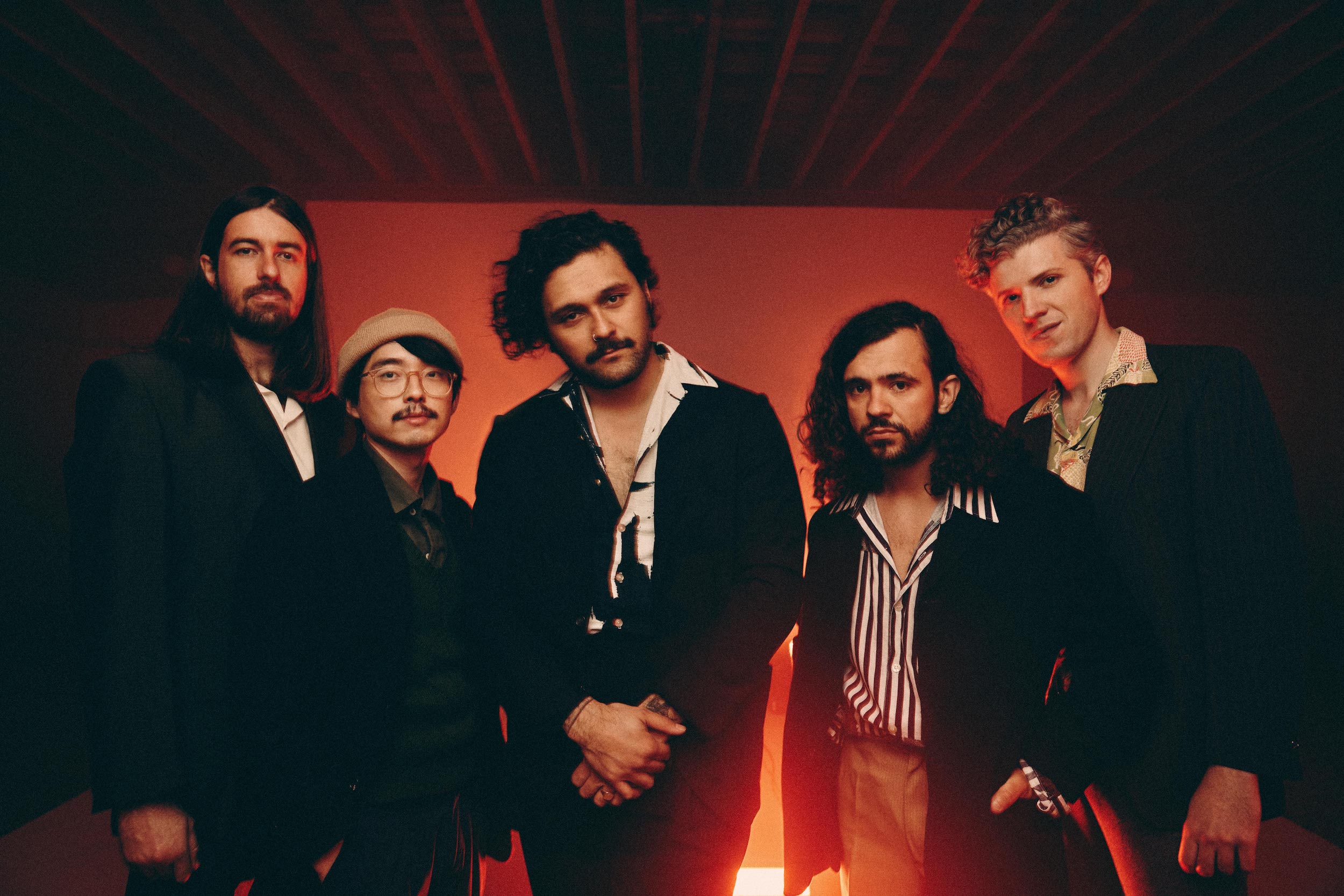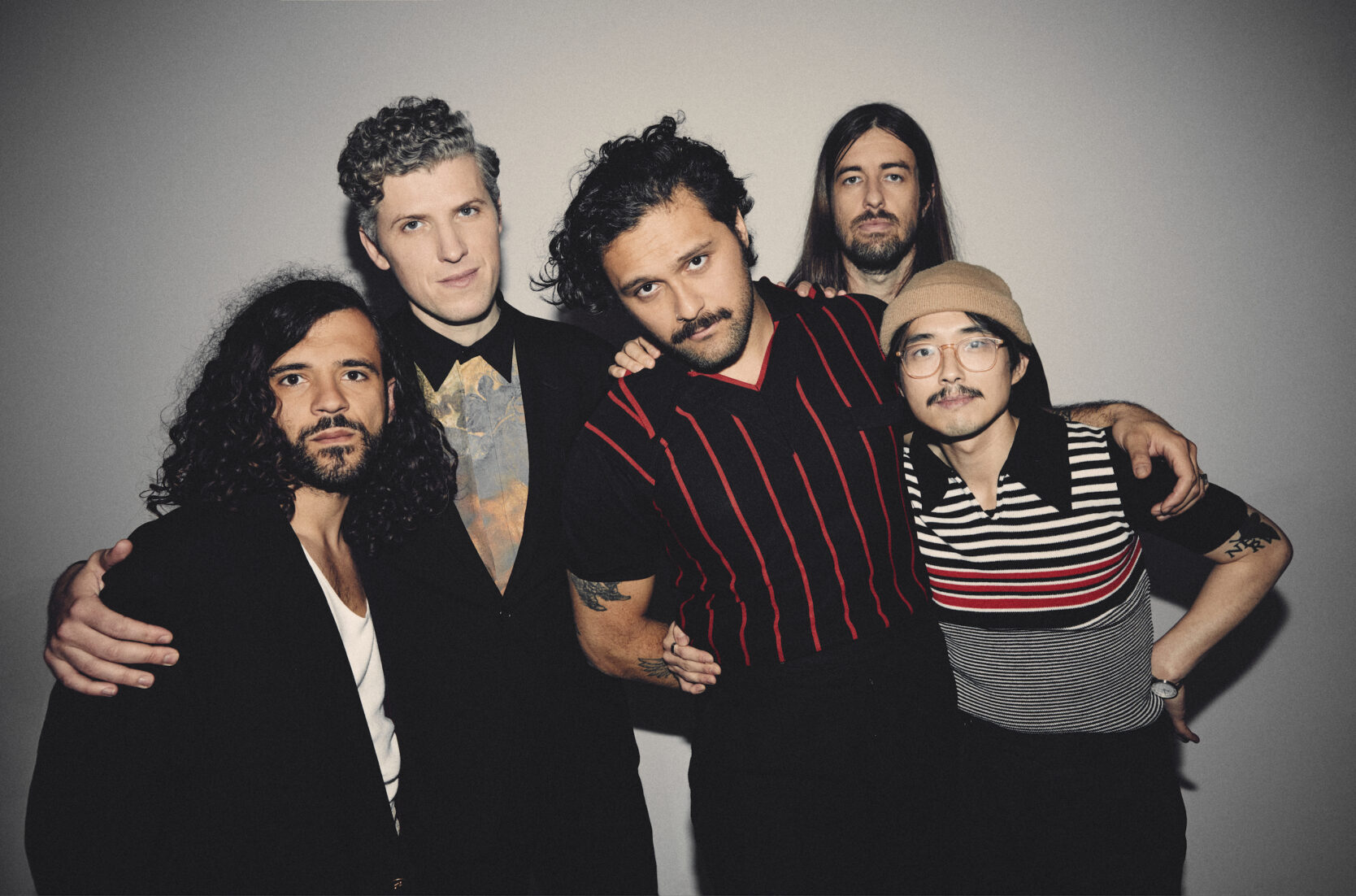Losing a parent is a devastating experience. Nothing can prepare you for it. The infinite range of conflicting emotions that come flooding in, just afterward is almost too numerous to fully account for. Grief, of course. Acute, unbearable grief. But also emptiness, anger, nostalgia, remorse, and so many others. The gravity of that kind of loss also forces you to stop and confront some questions you never properly considered before.
Who am I? Who were they? Where am I going? How did I get here?
What am I supposed to do now?
Those were the type of questions that weighed heavily on Gang of Youths frontman David Le’aupepe in the summer of 2018 when his father Telesco – known as Tattersall to his friends and family – died of cancer. The Australian singer-songwriter was in the midst of writing the follow-up to his band’s breakthrough second studio album Go Farther in Lightness when he was confronted with this incalculable loss. Le’aupepe’s father had been one of his best friends, and most eager supporters. Someone he both looked up to and leaned on. Someone he thought he knew inside and out.

Also Read
The Best Rock Albums of 2022 (So Far)
“My favorite thing about my dad is that he literally didn’t give a shit about my career, or what I wanted to do,” the singer said over the phone from his home in London. “He just wasn’t impressed by it, and I fucking loved it. He didn’t expect me to be anything other than not a piece of shit.”
As it turned out, Le’aupepe didn’t know his father as well as he thought he had. Tattersall Le’aupepe had some secrets; one’s he’d been harboring for far longer than anyone realized. In the immediate wake of his death, the singer learned that his father was in fact an entire decade older than his purported 70 years. He also wasn’t half-white as he long claimed to be, but was in fact, fully Samoan. He had hidden the secret of his heritage for years in order to help make life in Australia just a little bit easier for his children.
“There’s lots of indigenous and Black men, and women for that matter, who in that part of the 20th century, experienced similar heartbreak and had to make similar choices,” Le’aupepe explained. “It’s a profoundly Pacifica story. And there’s many Maori people who identify with it.”
Most stunning of all, however, was the revelation that Tattersall Le’aupepe had fathered two other children several decades earlier in New Zealand. His son David had absolutely zero knowledge about that. What’s more, many of Tattersall Le’aupepe’s extended family were under the mistaken impression that he had died sometime in the 1970s.
In an instant, David Le’aupepe’s world got much larger and far more complex.
To say that all of this new information was a lot to process would be a massive understatement. The man David Le’aupepe thought he knew was almost a complete mystery. So, he started putting together the pieces.
“It kept him weirdly alive, a bit longer for me,” the singer said. “It made me really respect how hard it was for him to keep that under wraps. Made me fucking love the man more. But it also gave me this inner sense of duty to ensure that his story wasn’t left behind.”
First things came first.
Le’aupepe decided to meet his long-lost brothers, which was its own transformative experience. Matthew, a seven-foot baker, who was brought up in a Maori family introduced himself at a music festival. “It became fucking real,” he said. It also brought about a new emotion: Survivor’s guilt. “I know our father had his reasons but / That can never make it right or fair,” he croons on the song “Brothers” as a soft, twinkling piano melody dances in the air. “I hate myself for stealing all his love / When my brother’s thought that he was dead.”
But then again, if Matthew could find it in his heart to forgive their Dad, then perhaps David could too.
After battling a brutal bout of writer’s block for a couple of years, Le’aupepe suddenly had a deeply personal story that he wanted to share with the world. Or, maybe he had to share it. “Oral tradition is so vital and important to our people,” he said. “It does feel nice to have a continuation of that storytelling tradition, including my brothers and my sister and my father within that framework.”
The end result became Gang of Youths’ latest record; a 77-minute maximalist rock opus titled Angels in Realtime. It’s their best record yet. One that sets them up for greater success to come.
The whole process of making it took the better part of four years to complete. The work spanned multiple countries and was finished off just as the entire world shut down.
“It was sort of a sense of this anarchic feeling of experimentation and freedom that we never really had before,” he said. “Being together in the studio, all of us just swapping instruments, sitting at the computer, everyone engineering the thing; there was a communal desire to serve whatever it is that this thing was going to be.”
For this project, the group, which features Donnie Borzestowski on drums, Max Dunn on bass, and multi-instrumentalists Jung Kim and Tom Hobden on guitar and keys, pulled out all the stops. There’s all the expected 21st century rock sounds, but also an array of Maori instrumentalists, snippets of field recordings taken from the 1970s, and a full-blown 42-piece string section recorded in Budapest, Hungary.
“Just hearing you throw that back to me, makes me sound like a shit Brian Wilson,” Le’aupepe deadpanned when confronted with the vast array of musical elements he married together on this album.
Not that he regrets any of those choices.
“We don’t make records very often,” he said. “So, why not just go for the jugular and go for something that felt expressive and aspirational, as opposed to kind of, slipping into a narrative where we have to feel like we need to make our sounds smaller in order to ensure that fucking, liberal arts educated tastemaker type people think we’re cool.”
Even all those faceless, liberal arts-educated tastemakers out there will probably find something to love on this record. Earnestness can be anathema to that set, but the breadth of emotions presented here is simply too deep, and too real to brush aside. The range of sounds, too interesting and eclectic to ignore. Not that this record is for those types of folks anyway.
“I’m not trying to be cynical, but I just think I stopped giving a shit,” Le’aupepe said. “I was such a fucking people pleaser my whole life. Most of my 20s. I just kind of realized that the most important question was…what is the most appropriate and meaningful type of sound to communicate what I’m actually trying to say about my father to my father?”

The skeleton key that helps make sense of the entirety of Angels in Realtime is its leadoff track, a soaring, seven-minute anthem titled “You in Everything.” The song contains elements of Philip Glass and Britpop. Post-punk and Folk. “It’s the opening shot of Boogie Nights, with the emotions playing and you’re traveling through the club, and you’re following on Heather Graham on her fucking rollerskates,” the singer explained. “I think the song is supposed to just sum up every other song in the record. Sonically, I think it’s a mish-mash of everything that we were fucking around with. There’s a lot of meta referencing, and a lot of allusions to other parts of other songs in the albums.”
And while Angels in Realtime is stacked with songs bursting at the seams with interesting musical ideas, perhaps the most impactful track is its quietest; an unadorned ballad nestled right at the very heart of the record simply titled “Brothers.” In it, Le’aupepe relates his entire family story accompanied by only a simple, repetitive piano melody. The effect is as arresting as it is evocative. “It’s an oasis of peace and uncertainty surrounded by noise,” he said.
More than any other song on Gang of Youths’ Angels in Realtime, “Brothers” was also the song that Le’Aupepe was the most on the fence about. “It seems so open, so broad, so honest, but I think the sentiments that I’ve got in there are important for the record, he said. “They tell my brothers’ story in a way that I think is dignified, maybe, but also doesn’t patronize them. It also doesn’t glorify my father, but it doesn’t condemn my father. It just says, it is how it is and that’s how it always will be now.”
By the end of the process of creating Angels in Realtime, Le’aupepe grew to understand a whole lot more about his father, his heritage, and his family. But he also learned a great deal about himself and the kind of person he would choose to become.
“It taught me how to be less of a judgmental piece of shit, cause I’ve had to look at people in the wholeness of their complexity,” he said. “I realized that, whatever I wanted — whatever judgment I might want to pass my brother on, my sister or my dad or myself — positive or negative – are basically just formed out of the impressions I make of them in my own head. I can never truly understand unless I’ve tried to imagine living in my father’s shoes.”
And while Le’aupepe is not one to glamorize the inherent power of music – at one point during our conversation, he likened the process of songwriting and recording to making a table – there will almost certainly be thousands of confused and heartsick people out there who will pick up this record and hear their own struggle within the grooves. Losing a parent is one of the most devastating experiences you can have as a human being. It’s a little easier when you know you’re not alone.
“It’s sort of weird,” the singer noted. “I want to be both more like my father than ever before, but nothing like him at the same time.”
Who among us can’t relate to that?




